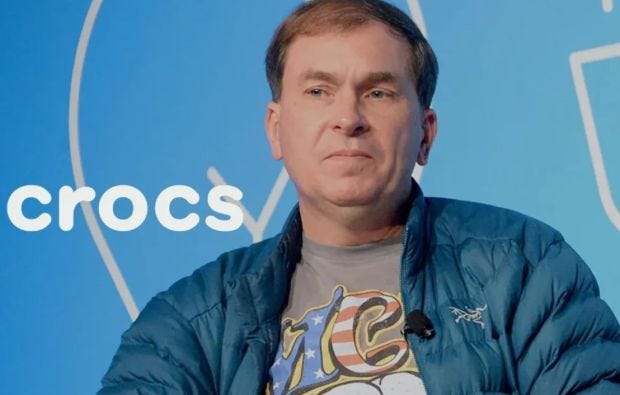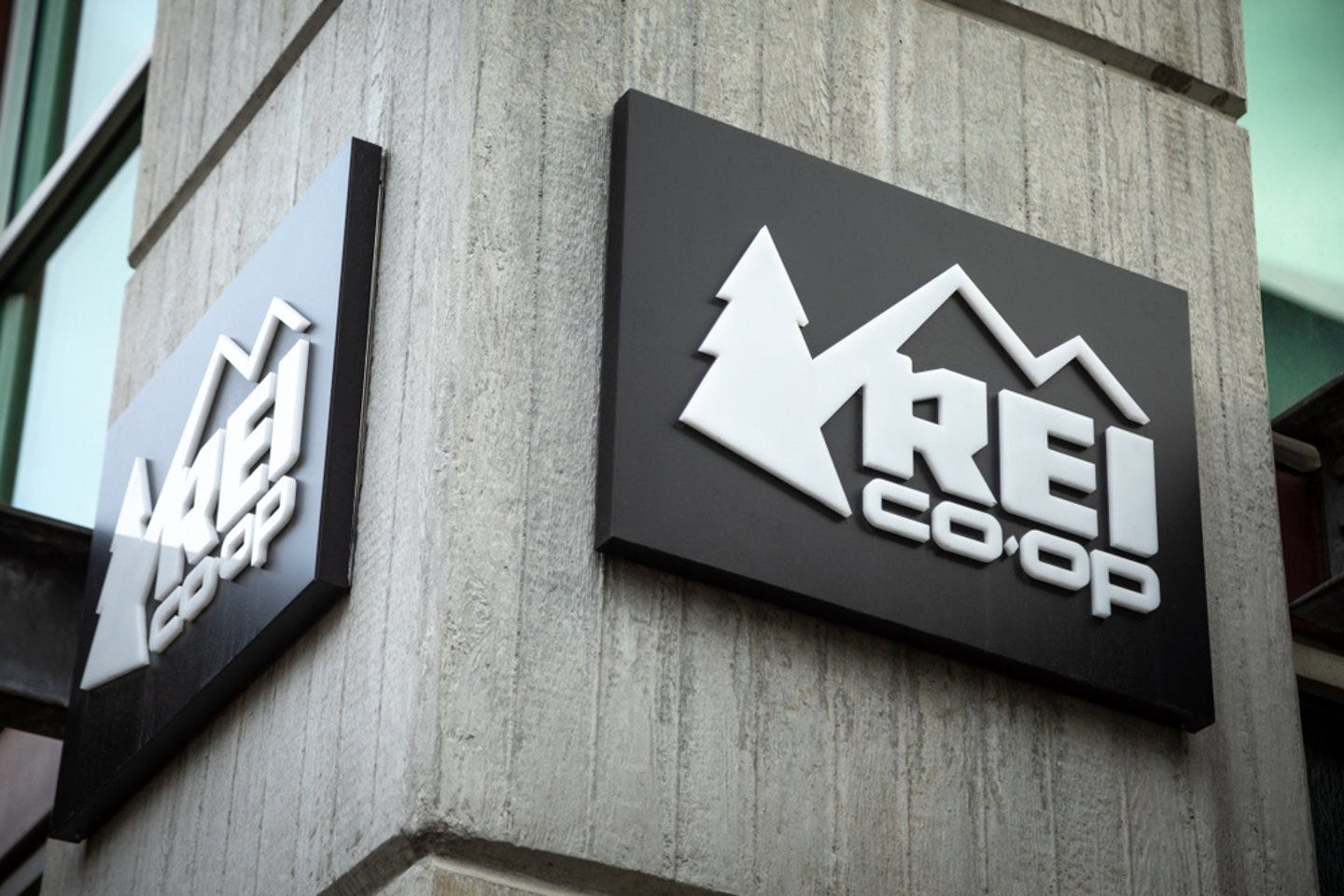This Week in Retail #53
Hey Friends,
This week I stumbled upon a pretty unique movie experience. For retail enthusiasts, most cinematic coverage involves scandals or an exposé of some sort, but I found one that is equally entertaining and engaging. Buy Now! The Shopping Conspiracy features interviews with insiders from major brands such as Amazon and Apple, who discuss the consumer manipulation strategies these companies employ. These experts reveal tactics like leveraging urgency through "limited-time offers," flash sales, and personalized recommendations to drive impulsive purchasing behaviors. The film also includes perspectives from former employees of prominent retail companies, some of whom were dismissed after years of service, as they expose unethical practices and deceptive marketing strategies.
Through these interviews, the documentary sheds light on how companies create a "hamster wheel" of consumerism, making shopping an almost unavoidable addiction. The voices in the film aim to make viewers critically analyze their consumption habits and question whether their purchases are truly necessary. It’s not winning an Oscar, but it was rather entertaining. You can check it out for yourself on Netflix.
A recent Morgan Stanley report reveals that Amazon, Walmart, and Costco account for a staggering 46% of U.S. retail growth, highlighting the increasing dominance of major players in the industry. The study emphasizes that "the big are getting bigger," with these three giants gaining market share at an accelerating pace. Factors such as their vast product offerings, strong logistics networks, and ability to leverage economies of scale are driving this trend, further consolidating their positions in the retail market. In all honesty, no real surprise here as the big fish usually innovate and outpace the market.
Macy’s delayed its Q3 earnings report, originally set for November 26, after discovering an accounting issue involving up to $154 million in hidden expenses. A single employee manipulated delivery expense records from 2021 to 2024. While the employee has been dismissed and no other staff are implicated, the company launched an independent investigation and plans to release its earnings by December 11. Preliminary results show a 2.4% sales decline but resilience in Bloomingdale’s and Bluemercury segments.
“Dad of the dad shoe” and renowned footwear designer Steven Smith, celebrated for his work on iconic designs such as the Reebok Pump Fury, Yeezy models, and New Balance 574, has been named Head of Creative Innovation at Crocs. Beginning December 2, 2024, Smith will take on the task of redefining Crocs’ design language. This includes evolving its signature clogs, introducing new product silhouettes, and driving innovation across both Crocs and its subsidiary brand HEYDUDE.
The appointment signals Crocs’ commitment to pushing boundaries in footwear design. Brand President Anne Mehlman emphasized the brand’s dedication to innovation, while Smith expressed excitement about exploring groundbreaking designs that blend functionality with style. His addition highlights Crocs’ ambition to solidify its position as a leading innovator in the global footwear market.
Amazon is doubling down on its AI ambitions by investing another $4 billion in Anthropic, bringing its total backing of the AI startup to $8 billion. This funding will help Anthropic develop semiconductor chips in collaboration with Amazon’s chip subsidiary, Annapurna Labs, as Amazon seeks to challenge Nvidia’s dominance in the AI hardware market.
The partnership mirrors Microsoft’s investment in OpenAI, as both companies aim to lead in generative AI through strategic alliances. Despite Amazon being a minority investor, the deal deepens its collaboration with Anthropic, including exclusive use of Amazon Web Services (AWS) for training AI models.
Meanwhile, Google’s $2 billion stake in Anthropic could face scrutiny from the DOJ, which is pursuing a broader antitrust case against Google’s search monopoly.
In some other AI news……Estée Lauder Companies (ELC) partnered with OpenAI to integrate ChatGPT Enterprise across its operations. With 240+ custom GPT models developed by an in-house lab, ELC aims to enhance employee creativity and efficiency. The initiative safeguards 75+ years of data while fostering product innovation and marketing across its brand portfolio, per Chief Data Officer Jane Lauder.
Delta Air Lines and Shake Shack have announced a new partnership to bring Shake Shack’s popular cheeseburgers to first-class passengers on select Delta flights starting December 1, 2024. The initial rollout will be available on flights originating from Boston and traveling more than 900 miles, with plans to expand to additional routes in 2025.
The in-flight Shake Shack meal includes the chain's classic cheeseburger made with 100% Angus beef, served with sides like chips, Caesar salad, and a dark chocolate brownie. Passengers can pre-order these meals through Delta's Fly Delta app, allowing for customization and ensuring freshness.
Delta sees this partnership as a way to elevate its in-flight dining by offering an iconic comfort food. Shake Shack similarly views the collaboration as an innovative way to expand its reach and enhance customer experiences at 35,000 feet.
Big Lots is entering a new phase as it prepares to finalize the sale of its assets and operations to Nexus Capital Management LP, a private equity firm. The sale, approved by the court, is expected to close in early December. This move follows Big Lots' September bankruptcy filing, part of a $760 million acquisition agreement with Nexus, aimed at stabilizing the off-price retailer after years of declining sales. The company had listed assets and liabilities ranging from $1 billion to $10 billion in its bankruptcy petition.
CEO Bruce Thorn expressed optimism about the company's future, emphasizing plans to reclaim its leadership in the extreme-value retail sector with Nexus's backing. The partnership is expected to position Big Lots for a stronger recovery, targeting growth by 2025 and beyond.
The Consumer Financial Protection Bureau (CFPB) has announced a new rule subjecting digital payment services handling over 50 million annual transactions in U.S. dollars to the same level of scrutiny as traditional banks. Major platforms such as Apple Pay, PayPal, Cash App, Google Pay, and Venmo will now face enhanced regulatory oversight to address issues like fraud prevention, data privacy, and dispute resolution. The rule aims to close gaps in consumer protection as these platforms increasingly resemble financial institutions in their operations. However, cryptocurrency transactions are excluded from this regulation. By focusing solely on U.S. dollar transactions, the CFPB seeks to manage risks associated with digital payment systems that have historically operated with minimal regulatory requirements.
REI is overhauling its return policy to address the growing issue of "serial returners." The company has identified less than 0.02% of its 24 million members whose excessive return habits result in significant financial losses. Some customers, for instance, return over 79% of their purchases, with one individual reportedly sending back more than $3,000 worth of merchandise, accounting for over 30% of her total purchases. Previous efforts to curb abuse through warnings and probationary periods failed, prompting REI to outright ban these members from its program.
This change mirrors a broader trend across the retail industry, where companies are tightening return policies to combat fraud and rising operational costs. Retailers such as Target and Amazon have recently introduced measures like return processing fees and banning frequent offenders, particularly during the high-volume holiday shopping season.
Temu has opened its platform to all U.S.-based sellers, marking a significant shift in its marketplace model. Small businesses and individual entrepreneurs can now join without an invitation and utilize U.S.-based warehouses to offer delivery within one business day. This expansion is part of Temu's strategy to strengthen its foothold in the U.S. market by increasing its local delivery capabilities and attracting more merchants.
The move comes as Temu intensifies competition with established players like Amazon and Shein. In response, Amazon launched “Amazon Haul,” a storefront aimed at budget-conscious consumers featuring items priced at $20 or less. Both companies are ramping up efforts to capture the low-cost retail segment, underscoring the increasing competition in this space.
That’s all folks…….Have a great week!






